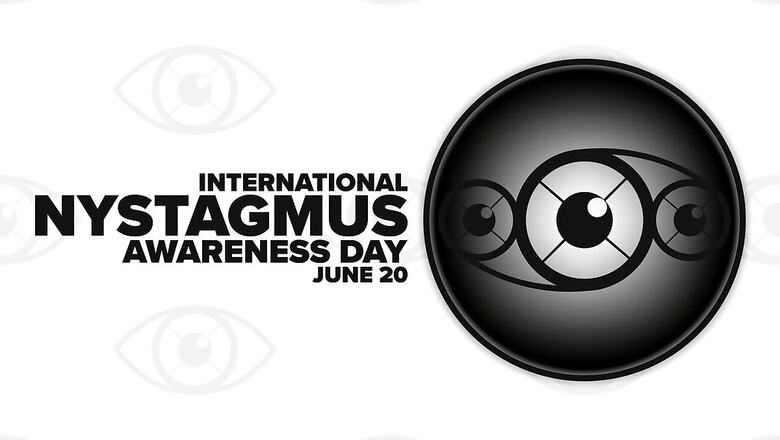
views
Nystagmus is a condition where the eyes make uncontrollable movements that compromise the vision of the affected individual. The effect is commonly known as “dancing eyes” as the pair of eyes makes repetitive movements from side to side, up and down or even in a circular motion. June 20 is observed as International Nystagmus Day, each year.
History and significance
The say is observed to bring attention to nystagmus and to educate the public about the treatments available. It is an initiative taken by Nystagmus Network, a registered charity in England and Wales that funds research on the disorder and celebrates the day annually.
The Nystagmus Network was established in 1984. On June 20 last year, the first International Nystagmus Day was observed by the charity as a virtual open-to-all event.
The disorder
Nystagmus affects both people and animals and is caused by pathologic and physiologic reasons. It occurs as an effect of a compromised vestibulocochlear nerve or issues in the brainstem or cerebellum. The eye movements in nystagmus can be fast, slow or both. It can be continuous or sudden and alter balance and coordination. It commonly develops during early childhood or is acquired later in life.
The two types of nystagmus are pendular nystagmus and jerk nystagmus. In the former, the eyes swing back and forth rhythmically, and in the latter, the eyes move in a direction and then suddenly jerk towards the opposite side.
Underlying conditions like poor eye movement development, inner ear issues, central nervous system diseases, congenital defects, albinism, myopia, astigmatism, trauma, sleep deprivation, multiple sclerosis, stroke and brain tumour can cause nystagmus.
Treatments
Nystagmus does not lead to absolute blindness and is not painful. While it is not curable, treatment includes supportive therapy, drugs like gabapentin, memantine, levetiracetam, contact lenses, and a surgery called tenotomy where the tendons are re-attached.
Awareness programmes
Nystagmus Network conducts research workshops, and holds the Raindrops competition of photography for adults, and story writing and drawing for children in the UK. This is aimed to encourage patients to explore their creativity and overcome the psychological effects of the disorder through positive associations.
Read all the Latest News, Breaking News and Coronavirus News here.

















Comments
0 comment